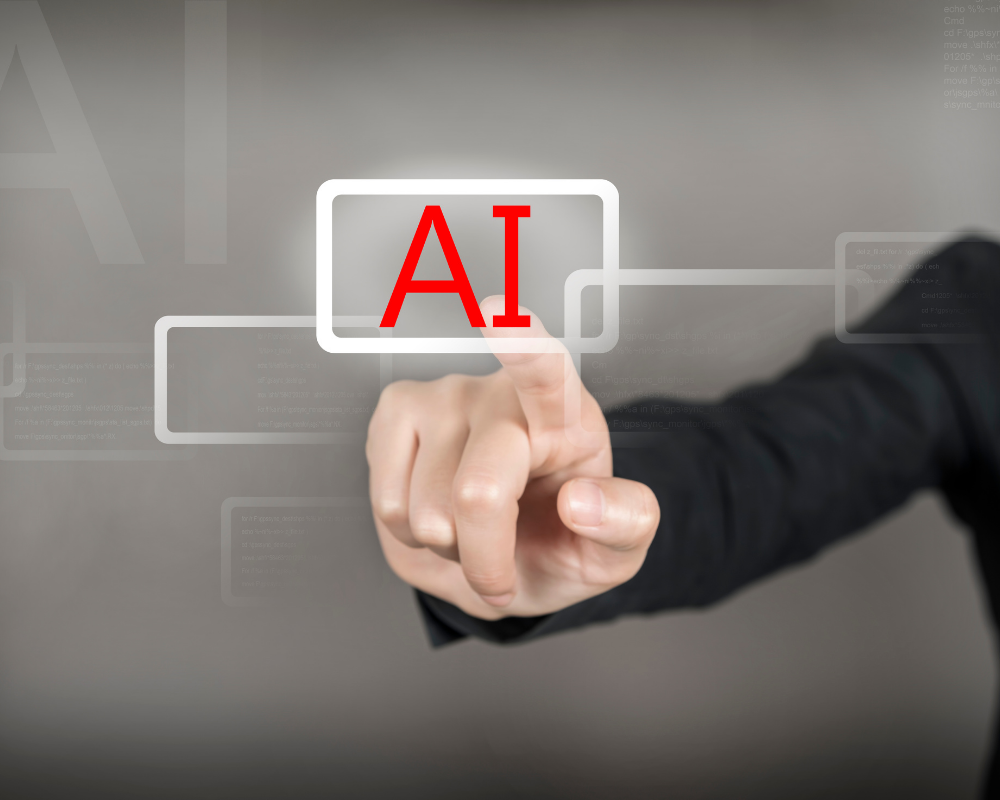Note from 2025
This post was written in 2021, before the rapid adoption of AI in recruiting and MedTech. While some perspectives have shifted, it’s been kept here for historical context — and to show how far things have come. A follow-up piece is coming soon.
When I think of Artificial Intelligence (AI), I immediately picture a sci-fi movie in which everything is controlled by and carried out by robots and technology. There’s no doubt that when AI was first introduced to the world of recruitment, there were fears of AI replacing recruiters in such a way. However, it appears to have done the opposite. Most recruiters will probably agree that AI has instead provided them with invaluable support to run their day-to-day tasks more efficiently. On the other hand, the rapidly growing healthcare industry has also been reaping a multitude of benefits.
While we enjoy the benefits AI offers, the question still looms whether it will replace recruiters? But before I answer this question, let’s look at some of the services AI provides the recruitment and healthcare industries.

The benefits of using AI in recruitment
Over recent years the technological advances in AI systems have changed how we as recruiters attract, hire, and retain talent. Here are just some examples of how I, as a recruiter, am benefitting from AI tools.
1. Improved quality of candidates: Ai can help formulate clear, descriptive jobs ads to accurately represent what you’re looking for in the ideal candidate. In turn, improving the quality of your candidates. Not only this, but with its prescreening capabilities and predictive analytics AI can help recruiters find the best talent for the job.
Here’s a pro tip: tools such as SourceBreaker seamlessly integrate with your CRM and databases to improve candidate pools by over 200% and identify vacancies that match candidates at the click of a button.
2. Automate manual tasks: Between scheduling, interviews, screening, and the hundred and one other things to do, the last thing I want to deal with is the tedious ad hoc tasks. This is where AI is a saviour. Think of it as a personal assistant, tools such as Herefish can automate tasks such as resume checking and communicate on your behalf, so you don’t have to take time away from your busy schedule.
3. Better experience for candidates: With automated systems allowing candidates to receive answers and information quickly and easily, they feel more compelled to stay connected with the organisation. What’s more, with video communication capabilities, they can build a connection and relationship with the recruiter even before meeting in person. In a world where candidates expect personalisation and use it to determine the culture of the hiring provider, such AI systems help make the best first impression.
4. Save time and hire faster: With AI carrying out prescreening and other tasks that we usually spend hours doing manually, we can now contact the most suitable candidates first and fill positions faster.
5. Target passive or future candidates: Manually, there is only so much one can do. This is where AI provides capabilities to extend the search for ideal candidates on social media networks, professional communities, resume databases, and job boards—allowing recruiters to tap into the dormant pool of untapped talent waiting to be discovered.
The list of benefits for recruiters is endless, but I will leave those for another blog another time. But while we are talking about the benefits of AI, it’s only fair to consider how the healthcare industry is benefitting from this technology. So, let’s take a quick look.

How the healthcare industry is benefitting from AI
The healthcare industry continues to evolve with advances in technology. New AI systems have allowed us to identify patterns and use algorithms to gain insights and research into diseases, leading to medical discoveries that were otherwise impossible. So, let’s take a glance at the benefits AI has already posed within the healthcare industry.
· Automating tasks to reduce the number of hours and money spent on admin tasks.
· Allowing to analyse large patient data sets in real-time has helped make better clinical decisions. In turn, helping them to diagnose patients and manage treatments more effectively.
· Wearable technology, such as Fitbit, alerts the users and their healthcare professionals on health issues and potential risks.
· Using robotic surgery for specific treatments allows for a more precise outcome and quicker recovery time.

Will AI replace healthcare professionals?
With such benefits and the Insider Intelligence projecting the growth of AI within healthcare by 48%, will AI indeed replace what we as humans can offer?
Let’s face it the wearable technology, such as Fitbits, are not yet proven to provide reliable data to determine the future of your health with the utmost accuracy.
And while we see a trend in robotics swooping through hospitals, with the competitive battle between hospitals on the rise to determine who offers the most state-of-the-art technology, we question whether any of this has the patients’ best interest at heart or is it all just about marketing and business? Yorkshire Knee Clinic recently raised a valid question around robots in joint replacement. Is an extra $3,200 of added cost worth it? Let alone, can patients afford this?
No matter what the future holds for AI within healthcare, we can expect that through its algorithms, it will support, and not necessarily replace, medical professionals in making better diagnosis and help improve the face of healthcare.

Will AI replace recruiters?
Well, without further ado, let’s try to answer that all-important question on our minds. Will AI replace recruiters? Here are a few thoughts.
A machine is a machine. It can never build a personal connection.
As a recruiter, I have built effective relationships with candidates, colleagues, clients, and industry professionals over the years. When a candidate gets offered a job, I can express my excitement. Something no piece of technology can do. As humans, we have something called the ‘gut feeling’, also known as the second brain. This ‘gut feeling’ allows one to look beyond the person and their experience. For example, have you ever met someone, and they were a perfect candidate in every way, but you just ‘had a feeling’ that they would not be the right fit for the company? That’s your ‘gut feeling’—something a machine can’t do.
.png)
AI does not make a good salesperson.
AI relies on data and algorithms to do what it does. However, it does not know how to be persuasive and sell the opportunity to a candidate. AI doesn’t look at the potential of a candidate like a recruiter does. Sometimes a candidate will say no to an option because they can’t see the potential. It’s times like these that we, as recruiters, put on the sales cap and persuade the candidate to give the opportunity a chance.
AI doesn’t think and work outside the box.
A machine will not work closely with a client to understand their needs and expectations. Instead, it provides options and narrows down the search for candidates based on criteria, which may or may not exactly fit the client's expectations.
Ai isn’t passionate.
AI can never replace the genuine care, and passion recruiters have for the process and what they do. It only works well with what it’s told to, and if you try to expect more, you can expect it to outright refuse in its own glitchy way.
AI doesn’t offer a personal touch.
Recruitment is a people’s industry. Recruiting should be personal; it should be tailored and not just go through the motions in a transactional manner. Put simply; it’s about the personal touch. This is the philosophy at DukeMed. No matter how advanced AI gets, it will never be able to sit down face-to-face with a candidate and ask them about their career aspirations and concerns they may have. AI will not connect in the personal way we as recruiters can with clients to understand their business culture and expectations.
Final thoughts
I guess for now; it’s safe to say we as recruiters are here to stay. And as far as AI goes, let’s think of it as an efficient sidekick. After all, every superhero/superwoman needs one!

Book a consult today
Looking for your next big opportunity? Let’s talk. At DukeMed, our business is built around conversations. So, give me a call on +61 2 7912 1168 or email info@dukemed.com.au and let’s kick-start your MedTech career.
.png)
